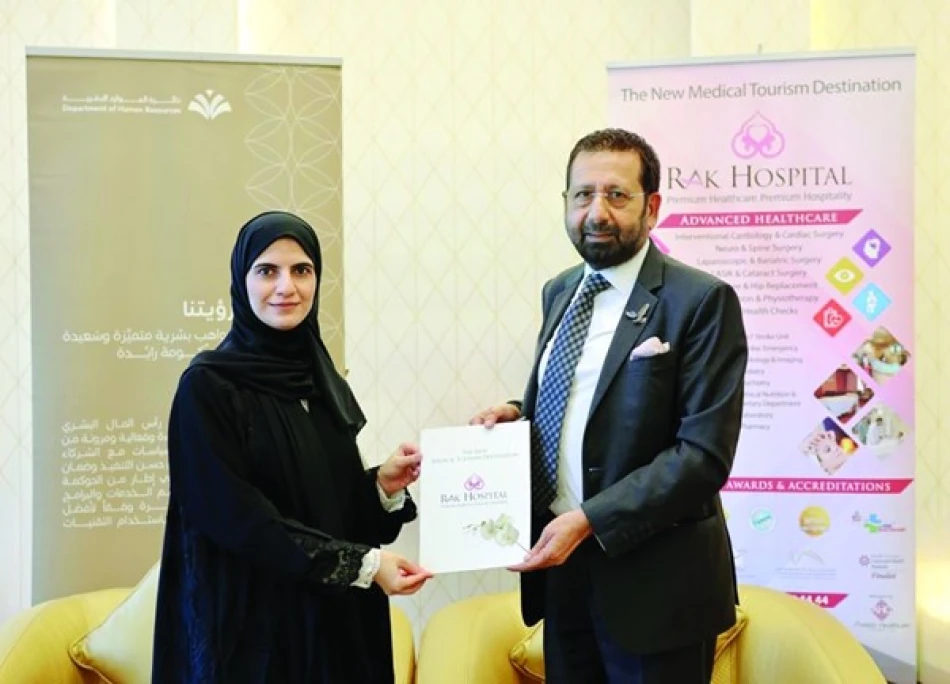
Ras Al Khaimah Humanitarian Society Inks Deal with Ras Al Khaimah Hospital
Ras Al Khaimah Government Expands Healthcare Benefits in Strategic Private Partnership
The Ras Al Khaimah government has signed a comprehensive healthcare agreement with Arabian Healthcare Company, operator of Ras Al Khaimah Hospital for Health Services, marking another step in the UAE's broader strategy to enhance public-private healthcare partnerships while reducing costs for government employees and their families.
Partnership Details and Employee Benefits
Under the new agreement, the Ras Al Khaimah Human Resources Department will provide government employees and their families with access to a wide range of medical services and treatments through the hospital's main facility and its branches. The deal includes significant cost savings, with discounts of up to 30% on various healthcare services.
This partnership reflects a growing trend across UAE emirates to leverage private healthcare infrastructure to supplement public services, particularly as government workforces expand and healthcare costs continue to rise globally.
Strategic Context in UAE's Healthcare Evolution
The agreement aligns with the UAE's broader healthcare transformation strategy, which has seen similar public-private partnerships emerge across the federation. Dubai Health Authority and Abu Dhabi Health Services Company (SEHA) have pioneered comparable models, demonstrating how government entities can secure better healthcare outcomes while managing budget constraints.
For Ras Al Khaimah, the smallest of the UAE's seven emirates by population, such partnerships are particularly valuable as they provide access to specialized medical services that might otherwise require significant public investment in infrastructure and equipment.
Market Implications and Investment Perspective
From an investment standpoint, this deal signals the continued maturation of the UAE's healthcare sector, where private providers are increasingly becoming integral partners rather than competitors to government services. Arabian Healthcare Company benefits from guaranteed patient volume and steady revenue streams, while the government achieves cost predictability and service quality assurance.
This model is likely to attract more healthcare investors to the region, particularly those focused on building sustainable partnerships with government entities rather than competing solely in the private market.
Regional Healthcare Trends
The Ras Al Khaimah agreement reflects broader regional trends where Gulf governments are restructuring healthcare delivery models. Similar to Singapore's mixed public-private healthcare system, UAE emirates are discovering that strategic partnerships can deliver better outcomes than purely public or private approaches.
The 30% discount structure suggests a win-win model where employees receive substantial savings, the government reduces its direct healthcare expenditure, and private providers secure volume-based revenue with predictable margins.
Most Viewed News

 Layla Al Mansoori
Layla Al Mansoori






